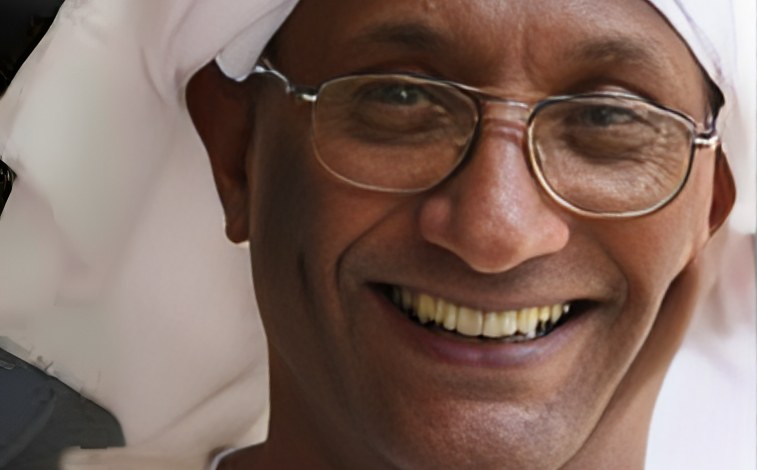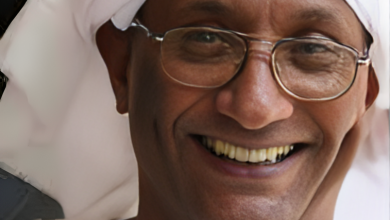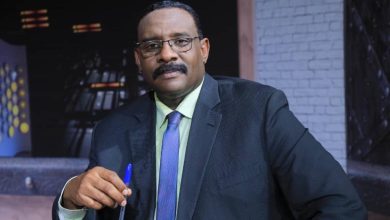Does Nation have Armed Forces, or Does Armed Force have Nation?

By: Abdullah Ali Ibrahim
The Forces of Freedom and Change (FFC), by all their names, ruled that corruption in our country began in 1989, and so forth. It is an affront to history and a dragging of it by a person who does not care. However, there is no objection to their dissatisfaction with Sudan since that date. But the question remains whether they understood this amount of history that they cut out not asking for return. Unfortunately, they did not understand it and their war was against Ingaz was due to the habit of opposition inherent in them, not a conquest that begins with, “Where did these people come from?” As a topic for research, not out of triviality or disgust, over the course of three decades, I have tried to raise the question of how they got the prestige and glory of research while they wanted from it to feel sorry for the people who came to them unexpectedly with “iron bags.” When they were fed up with me making them delve into the social and historical structure in order to make them understand their predicament, they isolated me and got rid of me by saying “I’m the opposition of opposition, with that I was asleep in presence of enemy. They do not oppose and opponent even if “He beats your back and take your money”
I will publish here some of what I wanted them to think about the structure of the political, social, cultural and comparative Ingaz state so that they know where it came from. But they stopped thinking about the horror of a regime in which two of the greatest evils, in their view, united: the army and the “Kizan”. It is better to overthrow them quickly, then the environment will be correct for thinking after getting rid of them. Please refer to the old article:
Professor Al-Ajab Ahmed Al-Tarifi only referred to the armed forces as the “Sudan Defense Force,” which is its name since its inception by the British. Then it became called the “Sudanese Army” by the ruling of Lieutenant General Abboud, then Nimeiry called it the “People’s Armed Forces” (I was somewhat confused by the changes). Al-Ajab’s adherence to the name “Sudan Defense Force” was a kind of nonsense and “out-dating .”
Not only did the name of our military institution change, but it internally transformed into a sprawling institution. Its human cadre, by virtue of its occupation of decision-making, management, and implementation positions in both the military and civilian arena for nearly thirty-three years, has become more aware of the national problem compared to other groups of the educated elite. The management of operations, intelligence, supplies, and morale enriched and diversified the experiences of officers of the armed forces. That is why their higher military academic institutions grew and became intense centers of enlightenment, research and teaching. If you look, on the other hand, at the local government officers, who were the leaders of the civil service running the sprawling councils and directorates, you will find that they have stepped down to the owners of canteens distributing sugar, Chinese paste, and cigarettes in a silver box. This destroyed their position among the people, clouded their imagination, and diminished their experiences.
Saying that the armed forces should be separated from politics in application of the old slogan “To the barracks, soldiers” is a simple and naive statement. During the years of its long rule, the armed forces expanded into civil society itself and developed traditions of governance or misgovernment, (there is no difference). Therefore, it is right, as we are on the cusp of reconciliation and peace, God willing (which has become widespread at some point in time of Ingaz), for us to pay the utmost attention to this basic institution in the present and future of our lives. It has become like what someone said about the Algerian army. The speaker said that if nations like England have armed forces, then the Algerian armed forces have a nation that is Algeria. I liked another word about the status of the Pakistani army, which is either in power or returning to power. Someone commented about this army after General Musharraf’s recent coup, saying that Pakistan is like a bodybuilding champion who focused on training a part of his body (the army) while neglecting the rest of the parts (civil society institutions and Shura governance) until they weakened and collapsed. Our armed forces are close to this description.
The opposition that agrees with the Ingaz Army (and there are a number of officers who are truly dissatisfied with the armed forces or the Ingazists for ending their distinguished services early and meanly, and they are the ones who decided to give their lives as soldiers for the homeland) should talk better about the army, consider its policies, and respect the armed forces. Civilians are devoid of the experience of good speech with these forces, and they have been raised to curse them in demonstrations and in their sessions. They must understand the culture of the armed forces if they want them to distance themselves from power and accept the will of civilians regarding their war and peace. I give this as an example. Dr. Ahmed Al-Amin Al-Bashir, a professor of history in America, told me that the Sudanese embassy hosted Colonel Garang in the context of the ongoing efforts for peace before the Ingaz rule. Sudanese professors, doctors, doctoral students, and master’s students pure civilians, everybody, to hear Colonel Garang’s talk about peace. Ahmed saw the embassy’s military attaché, Brigadier General Al-Mak, angrily leaving his office, turning his back on the meeting, and exiting out the door. He stopped and said to Dr. Ahmed:
Oh, did you meet only to listen to the words of this rebel?
The colonel, whom civilians flocked to hear speak as the leader of a political movement, is in the eyes of his former comrades-in-arms just a “rebel.” Whether the Attaché’s statement is true or not, it reveals a culture of the armed forces that civilians should know if they want the confidence of those forces in the democratic civil society they seek.



